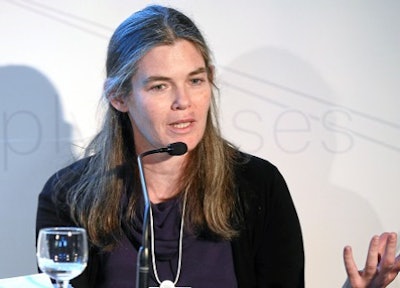 Dr. Daphne Koller is the co-founder of Coursera, the largest MOOC provider in the U.S.
Dr. Daphne Koller is the co-founder of Coursera, the largest MOOC provider in the U.S.For all the efforts underway to make Massive Open Online Courses a major part of American higher education, only a few initiatives have targeted community colleges as a venue for them to reach and educate students.
In a webinar titled “MOOCs and the Completion Agenda: Lessons in Learning, Assessment and Application,” two California-based community college leaders offered unique visions on how MOOCs could help two-year institutions improve student learning experiences. The American Council on Education organized the webinar on Wednesday, which included Dr. Daphne Koller, the co-founder of the MOOC-platform giant Coursera.
Dr. Barbara Illowsky, professor of mathematics and statistics at De Anza College, told more than 350 webinar participants that in California MOOCs could help students prepare for and pass basic assessment exams in English, math and writing. Setting up a system that allows community college students to take basic subject MOOCs prior to their enrollment would likely result in thousands of them being able to place into higher level courses, she explained.
“We have hundreds of thousands of students who really just need to review the content before they are ready to go on and take their assessment test,” said Illowsky, who is on assignment working in the California Community Colleges Chancellor’s Office in Sacramento, where she serves as the director of the Basic Skills Initiative and oversees Middle College High School grantees.
“I’d like to look at it as a way to save taxpayer dollars, a way for students to take ownership, and a way for us as community college faculty to develop courses to offer them in a pre-assessment way, so that students can have a shorter time to completion,” she noted.
Dr. Michelle Pilati, a psychology professor at Rio Hondo College and president of the Academic Senate for California Community Colleges, said that rather than seeing MOOCs as potential replacements for existing community college courses, she believes they should be made available to faculty members to use as supplementary content.
“There’s lots of discussion among our faculty looking at MOOCs as a way of creating a collection of high-quality learning objects that are ideally created collaboratively with faculty, so that they’re benefiting from the different perspectives and different approaches to teaching,” Pilati said.
“In California, we have 112 colleges. We have lots of course offerings. And the idea that we need to outsource education to MOOCs as a way of increasing access really doesn’t make sense,” added Pilati. “What makes a lot more sense for our students is increasing, or simplifying, access to our existing online offering, as well as investing in our existing online offerings.”
Coursera’s Koller provided an overview of her company, which offers 374 courses from 74 partner institutions. Coursera is the largest MOOC provider in the U.S.
In response to a question on the availability of general education, or introduction, courses offered on the Coursera platform, Koller said the company wants very much to position its “MOOCs as a technology in a partnership with existing academic institutions,” such as community colleges. She further explained the MOOC content would be “used in the online component, but students still have the ability to engage in meaningful ways with instructors and teaching assistants and staff” at their home institutions.
“We have the opportunity to target our resources in terms of the higher interaction models to the needs of students, as opposed to having a one-size-fits-all for an entire class,” Koller said.
The fourth webinar panelist was Dr. Elizabeth Allan, who is an associate professor of biology at the University of Central Oklahoma and the coordinator of the Secondary Science Education Program. Cathy Sandeen, the vice president for education attainment and innovation at the American Council on Education, moderated the webinar.





















